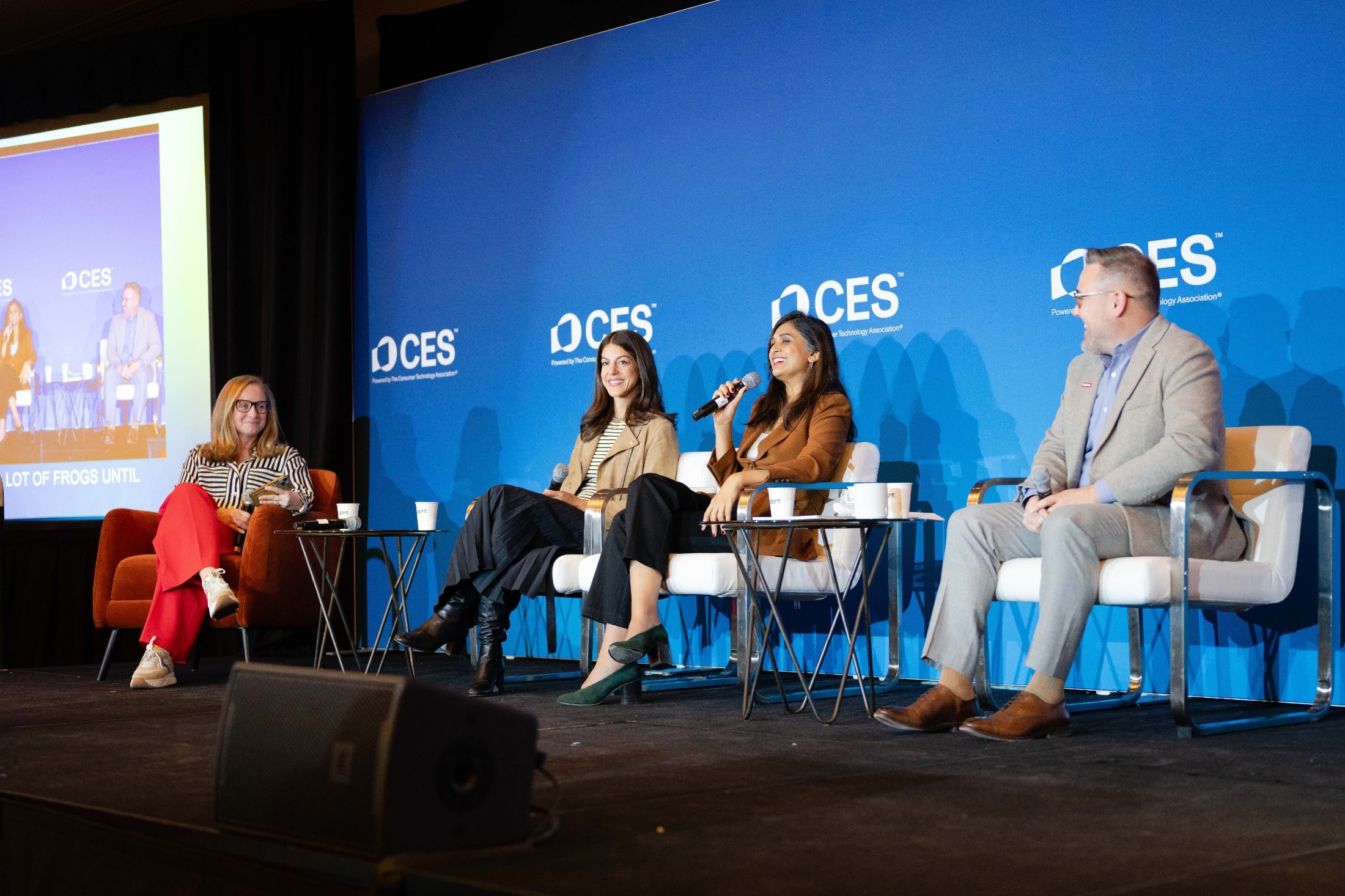Inspirational female leaders on the future of digital


Marketing Director, UK&I
DEPT® celebrated International Women’s Day by bringing together a group of influential female professionals to discuss their experiences of 2020, what’s next for the digital industry, and what they think the world will look like after the pandemic.
DEPT®’s Kristin Cronin, US Head of Marketing, led the conversation with guests: Andrea Ebinger, CEO of Hessnatur; Olga Kastelein, EU Digital Marketing Manager at Nikon; Nathalie Lam, Head of Global Sponsorship and I&D Ambassador at Phillips, and Hari Miller, Director of Corporate Communication at St. James’s Place Wealth Management. Here are some of the key takeaways.
Winning loyalty through purpose
Brand purpose, while not a new topic, has gained traction over the last year, often influenced by digital. Nathalie explained how consumers are now more likely to research brands to make more informed purchasing decisions, based on a brand’s social and environmental impact; commenting, “research indicates that brands demonstrating purpose create a loyal customer base. I personally choose my preferred brand by how they are living their purpose.”
On the theme of loyalty, Olga added “if you want to have loyal customers, be loyal to your customers first. Understand what moves and drives customer choices. Digital can be used to add value by focussing on customer needs and delivering services in demand; make sure enhanced services are provided too.”
Representing the financial sector, Hari commented that differentiating one brand from another is very difficult in her industry, where customers largely make decisions based on price, so there is a deep commercial imperative for purpose. She said: “Having a purpose doesn’t just mean having ‘shiny bobbins’. The organisation has to have a real backbone. This must be reflected in culture and decision making.”
Purposeful Transparency
The panel also discussed transparency among employees and customers, and how to balance what companies can and can’t be transparent about. Olga stated: “It’s not just a question of what you can be transparent about, it’s also about the purpose of transparency and how it can add value.”
She went on to highlight the importance of mapping out topics that it’s important to be transparent on, as if companies put too much time into making everything transparent, the process is no longer efficient and no longer adds value; commenting, “there needs to be a good framework based on what customers value and want to know. In other words, transparency must be purpose-driven.”
Andrea detailed how she approaches transparency with employees by trying to communicate all relevant topics, including bad news as well the high points, stating that “people don’t want to hear sunny news only.”
While discussing effective measures of transparency, Hari spoke about a platform used at SJP that grants anonymity to users and is valuable in terms of measuring the sentiment of responses. A key finding was that females, BIPOC individuals and young employees were more likely to remain anonymous. Meanwhile, white males of certain tenure felt they had a ‘safe place’ to express ideas and ask questions. The platform showed where trust already existed and where it needed to be built, demonstrating the importance of digital data to drive improvement.
The pandemic’s impact on women
On the topic of COVID-19, the panel shared their views on how the pandemic has impacted women professionally and whether they had experienced more hurdles or opportunities as a result.
Andrea discussed the effects on the female workforce in Germany: “Even if both parents are working from home, mainly women are taking care of households. But there have been bright spots where families have established more equality at home. Looking at the management floor, we see only 30% of women in leadership roles. We should take this to heart and raise our voices so women don’t fall back into outdated roles by default.”
“I fear diversity and inclusion will fall down on the agenda due to the financial crisis. We need to pay attention and make sure this topic remains at the top despite the challenges presented”, Olga explained. “Unfortunately, we are still way more traditional [in our actions] than our goals. Women need to stand up for themselves and men need to stand up for us too.”
Nathalie pointed out the positive implications of the digital-first world, that working virtually helps break down barriers to inclusivity. For example, someone with a disability who might be precluded from working in a certain physical environment could now have the opportunity to work in a field or role they otherwise might not have been able to. She went on to say that the pandemic also gives flexibility to those with children by opening up opportunities for individuals to work from home.
Hari also weighed up the pros and cons, stating, “I think that the digital environment is a great leveler and not just in terms of flexibility.” She went on to explain how digital chat channels open the floor to those who ordinarily would be hesitant to speak in a room full of people; commenting, “digital conversations give the quiet courage to use their voice.” She added: “While I do see positives, in the UK we are facing a dilemma with unemployment rates.” In financial services, customer-facing and in-branch roles mostly belong to women. The shift to digital will eventually lead to many of those roles disappearing. It’s important to communicate upskilling pathways and ensure there are roles elsewhere so we don’t take a significant step backwards with women.”
To ensure a future of gender equality, the panel stressed the importance of digitally upskilling and helping to shape the educational curriculum for the next generation of female leaders. Hari urged organisations to help encourage young girls to take up STEM (science, technology, engineering, mathematics) subjects in school, emphasising, “we need to broaden the pool of where we are going to get our future leaders.”
The diversity and inclusive imperative
In relation to diversity and inclusion, Nathalie explained the differences between local and global strategies for international organisations. Focussing globally means benchmarks are set across the entire organisation, whereas in local markets, the emphasis shifts as consumers and employees are far more culturally homogeneous. In this instance, diversity is much more about regional influences, personalities and qualities; she said, “traditionally, people think of diversity in terms of culture and colour, but there are many more dimensions.”
Nathalie recommended that businesses consider their model, marketing message, tone of voice, wording and communication channels, as “to ensure all customers are reached, the journey must be planned from the beginning. Continue to audit the journey, benchmark it, research it. Don’t make assumptions and don’t forget to ask your audience.”
“Diversity adds value to companies,” said Olga. Because ideas and thoughts vary from culture to culture, gaining a first-hand perspective provides new insights into the customer base; “data helps to understand from a marketing perspective if companies are missing something.”
Andrea provided insight from a C-level perspective, “the key is to be brave and take action. We have to uplift and protect people who differ in whatever form. Conflict in onboarding needs to be moderated. If we do this we can shape the world together.”
Advice for future female leaders
Offering advice based on her professional experiences, Olga commented: “Women tend to think they need to adapt to their environment, instead of steering their environment to meet their vision. We have to focus on our passion because what comes out of this is powerful. Career is something that deserves a long breath, focus on where you want to go.”
Working mother Nathalie expanded on Olga’s advice, drawing from her own experience. While she has always worked full time, Nathalie also wanted to be involved in her children’s daily activities, “I made sure all of the companies that I worked for offered a flexible work schedule, this way I didn’t have to feel guilty about working. The moment you get the interview you should let them know you are looking for flexible hours wherever possible.”
Hari shared that she believes being reliable leads to more responsibility and advancement. She said: “What got me where I am today is that I was doggedly consistent. I set my goals for what I wanted to achieve, I never over-promised or under-delivered.”
Whereas Andrea emphasises the importance of supporting each other, saying: “We need to give ourselves permission to be courageous and forge our professional path in our own way, even when faced with resistance. We need female leaders that won’t give up.”
Women are pivotal to the future of digital across multiple sectors. Although the pandemic has posed new challenges, particularly for female professionals, this International Women’s Day panel discussion demonstrated the importance of a diverse leadership team as well as the wide-reaching impact women have on the industry.
If you weren’t able to attend the live streamed event, you can watch the recording below.
More Insights?
View all InsightsQuestions?
Marketing Director, UK&I



